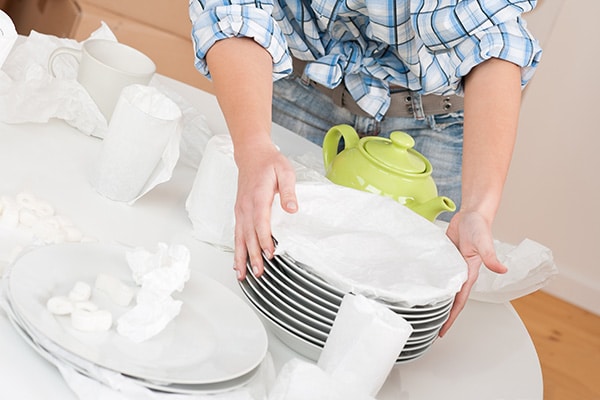
How to Pack and Move Crockery Safely with Packers and Movers
Crockery—your plates, bowls, cups, and delicate glassware—requires extra care during a house shift to prevent chips, cracks, or breakages. Whether you’re packing yourself or relying on professional packers and movers, these tips will ensure your crockery arrives at your new home intact.
Notes for Your Blog or Use
- Choose Quality Packing Materials
Use sturdy boxes, bubble wrap, packing paper, and foam dividers. Professional movers often provide specialized dish packs or barrel boxes designed for fragile items. Avoid reusing old, flimsy boxes that may collapse.Pro Tip: Request your movers for double-walled boxes for added protection. - Wrap Each Item Individually
Wrap every piece of crockery in bubble wrap or packing paper to cushion it against shocks. For delicate items like wine glasses, use foam pouches or extra padding. Secure wraps with tape to prevent unwrapping during transit.Packing Hack: Stack plates vertically (like books) in boxes, as this reduces pressure on the center of the plates. - Layer Boxes for Extra Safety
Place a layer of crumpled packing paper or foam at the bottom of the box to absorb shocks. After placing wrapped crockery, fill gaps with packing peanuts or towels to prevent movement. Add another layer of padding on top before sealing the box.Safety Note: Don’t overpack boxes; keep them under 20 kg for easy handling. - Label Boxes Clearly
Mark boxes containing crockery as “FRAGILE” and indicate which side is up. Specify the room (e.g., “Kitchen – Crockery”) to help movers place them correctly. If you have high-value items like fine china, inform your movers for special handling.Mover Tip: Ask your moving company if they offer insurance for fragile items. - Check Mover Expertise
When hiring packers and movers, confirm they have experience handling delicate items. Ask if they use trained staff for packing crockery and whether they provide custom crating for high-value pieces like porcelain sets.Question to Ask: “Do you use dividers or custom padding for crockery?” - Unpack Crockery Carefully
Once at your new home, unpack crockery first in the kitchen to set up essentials. Check each item against your inventory list for damage. If any pieces are broken, document them with photos and contact your movers’ insurance provider promptly.Settling Tip: Store crockery in cabinets with non-slip liners to prevent sliding.
Notes for Your Blog or Use
- Integration: This section can be added to the earlier blog under a new tip (e.g., “Tip 5: Pack Crockery Like a Pro”) or used as a standalone blog post titled “How to Safely Move Crockery with Packers and Movers.”